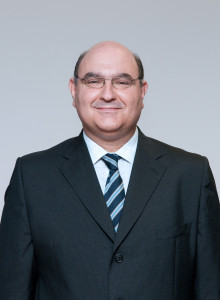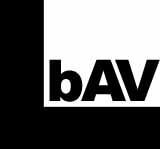Vier europäische Verbände haben gegenüber der europäischen Aufsichtsbehörde EIOPA ihre Sorge um die Besetzung der Interessengruppen zum Ausdruck gebracht. Ob dies jedoch Wirkung zeigt, bleibt aber abzuwarten.
„Together we stand, divided we fall“, hieß es weiland bei Roger Waters. Das dachten sich wohl auch vier europäische Verbände, nämlich mit BusinessEurope und mit CEEP die europäischen Verbände der privaten und öffentlichen Arbeitgeber, mit UEAPME der europäische KMU- und Handwerksverband und mit der European Trade Union Confederation (ETUC) die Gewerkschaften. Gemeinsam haben sich die vier nun an Gabriel Bernardino, seines Zeichens Chef der European Insurance and Occupational Pensions Authority (EIOPA) in Frankfurt am Main gewandt, um ihre Besorgnis wegen der Art und Weise des Auswahlprozesses der Occupational Pensions Stakeholder Group (OPSG) zum Ausdruck zu bringen.
Vorab zur Erinnerung:
Die EIOPA hatte Anfang Oktober 2013 ihre beiden Stakeholder-Groups neu besetzt. Die Behörde verfügt über zwei solcher Interessengruppen: eine für die bAV – eben besagte OPSG – und eine für das Versicherungs- und Rückversicherungswesen (Insurance and Reinsurance Stakeholder Group IRSG).


Wer steht überhaupt für was?
In einem gemeinsamen Brief mit Datum 6. Mai schreiben die erwähnten vier europäischen Verbände nun Bernardino in dieser Sache direkt an. In ihrem Fokus stehen zwei grundsätzliche Aspekte:
„Firstly, we are concerned about a lack of transparency in the selection process. On the one hand, the OPSG is composed of different identified stakeholder groups; on the other hand the members are appointed with a personal mandate based on their experiences and capacities in the field. This selection process makes it unclear whether individuals are representing themselves, a specific organisation and/or a specific stakeholder group. This creates unnecessary confusion for members of the OPSG, stakeholder organisations such as our own, and those following the work of EIOPA. We also believe that this does not reflect well on the important work of the OPSG and EIOPA as a whole. Also, some of the specific categories in the OPSG are unclear. For example the category of employees concerns those working for an IORP, whereas workers who will benefit from an occupational pension are more logically represented in the beneficiaries’ category.“
Nachvollziehbare Sorge

Die Sorge um die Unklarheit der Repräsentanz der Mandate ist nachvollziehbar. So ist die Deutsche Koller, obwohl Generaldirektorin der Insurance Europe, ausdrücklich als EbAV-Vertreterin berufen worden. Über die dahinter stehende Logik kann man geteilter Meinung sein. Konfrontiert mit den jüngsten Vorbehalten der Verbände, ließ sie nur verlauten, dass sie in den Auswahlprozess schließlich nicht involviert, sondern dies Angelegenheit der Behörde sei.

Keller fühlt sich allerdings ebenfalls nicht angesprochen. Gegenüber Leiter-bAV.de erklärte er: „Die Kritik richtet sich offensichtlich an die Aufsichtsbehörde und nicht an einzelne Mitglieder in den Gruppen.“
Arbeitgeber draußen vor der Tür
Zum zweiten kritisieren die vier Verbände die mangelhafte Vertretung echter Arbeitgeber:
“Secondly, there are serious shortcomings in the representativeness of the OPSG, given that employers are not represented in their own right. This is not acceptable as they are an important stakeholder in occupational pensions and their expertise is indispensable. They merit a separate category in the OPSG, alongside the pension fund industry, as the financiers of occupational pensions and users of pension funds. This is all the more incomprehensible, since employers were represented in the previous mandate of the OPSG.“
Vorschläge machen die Verbände auch:
„We suggest that this includes a general review of the appointment procedure to the OPSG, clarification of the role of members of the OPSG and who they represent, ensuring that the OPSG/EIOPA engages with employers already during the current mandate in an ad-hoc manner and by allowing an employer representative to be present in the next mandate as was the case in the previous mandate.“
Doch gefragt sei auch der Europäische Gesetzgeber:
„In view of the review of EIOPA’s founding regulations foreseen for the coming years, we will also be urging policy makers to undertake a general review of the appointment procedure, which would provide more clarity and transparency, and amend the EIOPA regulation (article 37) to mention employers as a relevant category.“
Schaun mer mal

Wenn Arbeitgeber und Gewerkschaften sich zusammentun und einen gemeinsamen politischen Vorstoß starten, dann zeigt das regelmäßig sichtbare Wirkung – allerdings vornehmlich auf gewählte Politiker. Doch die sind hier nicht die Adressaten, sondern eine weitestgehend autonome europäische Aufsichtsbehörde, deren Vorsitzender aus seinem von ständig steigendem Selbstbewusstsein getragenen Gestaltungswillen keinen Hehl macht. Hinzu tritt, dass das Schreiben verhältnismäßig allgemein bleibt und vor allem auf die berechtigte Problematik, ob EIOPA den besagten Artikel 37 überhaupt rechtmäßig angewandt hat, nicht konkret eingeht. Ob sich EIOPA von den salbungsvollen Worten der vier Verbände beeindruckt zeigt, bleibt also mit Skepsis abzuwarten.



















